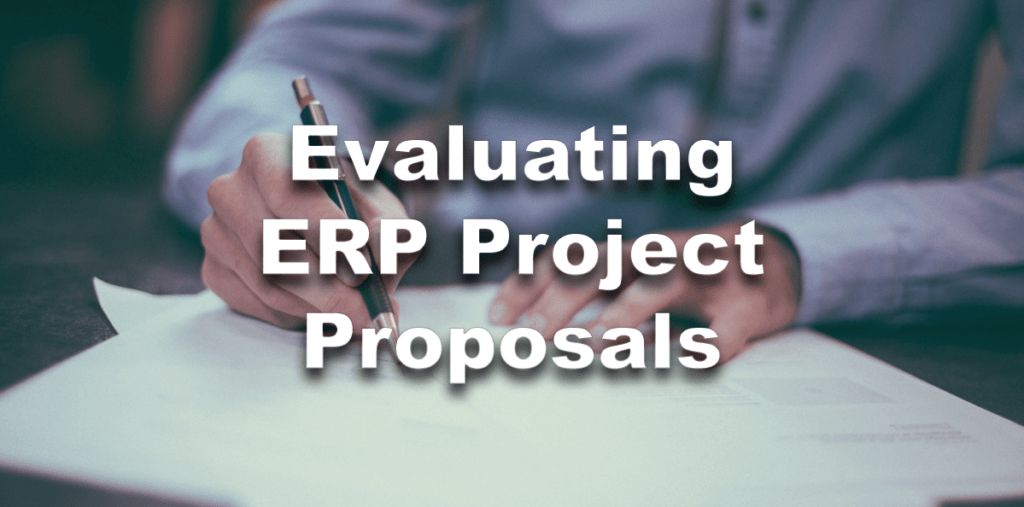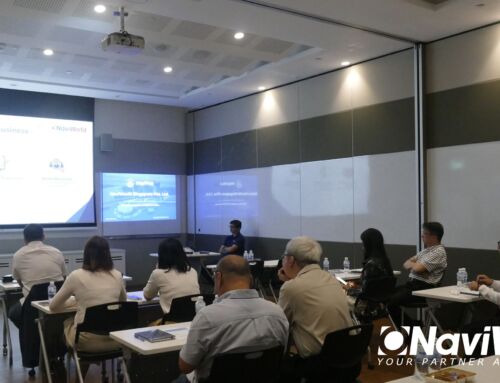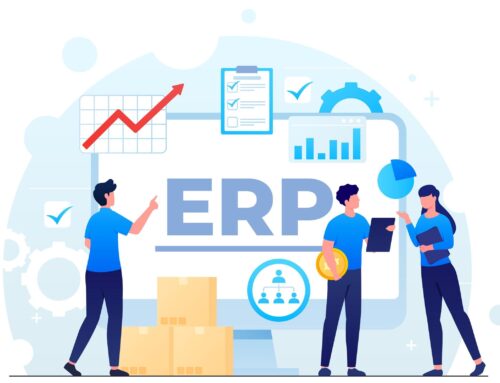
Evaluating Enterprise Resource Planning (ERP) software and selecting an ERP implementation partner is a complex and difficult process. Worse still, this whole process can be especially tough for those who are new to ERP. So what are the key things to look out for in an ERP proposal?
In the last few years, I have encountered several companies with troubled ERP projects, seeking our assistance. I was always curious to know what made them chose their previous ERP vendors. From many companies, I realized that the deal-breaker was most often the promise of results at a lower upfront cost. I observed that how a company evaluate an ERP project proposal will determine their choice of ERP implementation partner. I have also found some common tricks that ERP vendors adopt in their proposals to win the project. Here are some of my observations when it comes to evaluating ERP proposals in the hopes that you can avoid an unhappy partnership.
Things to Look For When Evaluating ERP Proposals
Low Man-Day Rate
ERP implementation partners themselves know that the topmost concern of most companies is the man-day rate. So in order to secure the deal, some ERP implementation partners will lower the man-day rate in an effort to reduce the upfront cost. So the question now becomes, how will the vendors recover their profit margin? They can do so in many ways, and I have listed the three most common ways below.
- Increase the number of man-days needed for any additional services that are not in the initial project scope.
- Intentionally generate more customizations to increase the man-days needed.
- A low man-day rate is made possible by outsourcing resources, sometimes even to the extent where support is not done locally.
How to determine a reasonable man-day rate?
I have listed some data below which you can use as a benchmark for comparison:
- When I first started out my ERP career in 1997, the man-day rate for a mid-range ERP consultant then was SGD 1,500. The man-day rate for large ERP such as SAP R3 was USD 1,000 (SGD 1,800).
- Customers often think that consultants can bill each and every of their working days. So when they multiply their perceived billable man-days a month, it gives a false idea that their service revenue is very lucrative. However, in reality, a consultant can only bill an average of ten to twelve man-days per month. There are days that will be consumed by administration tasks, training, self-learning, research, bug-fixing time, etc. that are not billable.
- Below are the standard man-day rates of a Microsoft Dynamics 365 Business Central ERP consultant in various countries:
- Japan – about SGD 1,750
- Europe – between SGD 1500 and SGD 1700
- Thailand – USD 500 (SGD 700)
- Vietnam – USD 450 (SGD 600+)
- China – USD 600 (SGD 800+)
- India – USD 200 to USD 250 (SGD 280 -350)
So, if an ERP vendor can offer a very low man-day rate and/or upfront cost, you should keep a lookout for additional costs. These costs may be hidden, or an add-on that may come up in the future during the implementation stage.
How do ERP vendors make up for the low man-day rate?
As mentioned earlier, some ERP vendors may quote a lower man-day to make their proposal attractive. There is no right or wrong in quoting a high man-day or a low man-day. However, the most important thing for you as a buyer is to find out how the vendor derives these man-days. Sometimes, vendors may compromise the quality of the ERP implementation in the process of securing a project deal.
1. Reduced Project Scope
ERP vendors may omit some of the common standard project scopes such as:
Security Training
I often encountered projects that went live with all the users set as a superuser. This means that all users can access any of the modules in the ERP system, right down to sensitive information such as the company’s financial data.
Standard Analysis Tools
Instead of implementing the standard analysis tools in the ERP, some ERP vendor excludes these from the project scope. Often, they try to upsell a visually attractive third-party report tool to their customers instead.
2. Additional/Hidden Costs
Data Migration as an Add-On
Data migration normally contributes to about 20% of the total implementation effort.
To lower upfront costs, some vendors will exclude this effort from their proposal. So upon the implementation stage, customers will have to either manually enter the master data themselves, or pay for data migration effort as an add-on instead.
Financial Statement
I encountered a project that went live without having financial statements in its ERP system. The customer then had to have it included at an additional fee.
3. Implementing Pre-Configured Solution
Some ERP vendors may reuse the configuration and customizations that they had created in previous projects. With the reduction of analysis and design work, the consultant man-days needed is now lowered.
This approach may not necessarily be wrong if:
- The new customer can accept the processes of the pre-configured solution with minimum variation.
- The project, which was based on the customizations created for the older ERP software version, is delivered with the latest ERP software version.
- The customizations used are bug-free.
However, if the above conditions are not valid, pre-configured solutions are not recommended. You may end up paying more for the additional customization services and maintenance later.
4. High Customization Cost Later
With the limited budgeted man-days for the standard ERP implementation, consultants now have lesser time to do a detailed analysis and design of the system. Instead of spending the time to see if standard functionalities can be configured, customization becomes a quick solution to your needs.
For instance, one ERP implementation partner I know of practices consultant quota to recover project margin. What this means is, the consultants are instructed to generate a certain amount of customizations for each project. You will then pay an additional fee for each customization service done.
Things to Look Out For in an ERP Implementation Proposal
One of the obvious risks in selecting an ERP implementation partner is the difficulty in changing partners in the midst of project implementation. This is why selecting an ERP implementation partner is very important.
For a company evaluation ERP solution and selecting an ERP implementation partner, what should you do?
As the saying goes, the devil is in the details. The lack of details in the proposal should immediately serve as a warning sign.
However, no proposal will be able to cover the details of a complex and large-scale project such as an ERP project. So when I mean details, I meant the important aspect the project proposal should cover. I have listed a few of the most important areas you should focus on when choosing the right proposal.
1. Scope of Project
It is important to compare the scope of the project in each proposal. The more detailed the proposal is, the better. Likewise, check if the scope and hidden costs mentioned earlier are stated clearly in the proposal scope. You do not want to end up bursting your allocated budget due to these additional costs and services during the implementation stage later.
Often, users will not fully understand all the terms in the proposal or discussion. If you feel like certain clauses in the proposal are confusing, ask. Not sure if data migration is included in the project scope? Ask. The responsibility is on you to ask for an explanation for any terms or implementation processes you are unsure of.
2. ERP Implementation Strategy
A different implementation strategy will result in a different effort estimate. It is important to understand the implementation approach of each implementation proposal. Find out if it is a fresh full implementation that will include a full analysis and design, or a pre-configured solution with minimal analysis and design.
There are at least 3 ways in which a company can choose to upgrade its ERP system to the latest version:
- Upgrade all the existing data, including historical transaction data and customizations, to the latest version. This is the best method for systems that are working well and has little customizations done.
- Upgrade all the customizations to the latest version with the migration of master data only. No historical transaction data will be migrated — the company starts with a fresh opening balance. This is good for companies that want to start afresh without errors in the historical data. However, this method works best on an ERP system with fewer customizations.
- Fresh implementation with full analysis and re-design of the ERP system. ERP systems with a lot of bugs and issues are best suited for this strategy.
It is thus, important for you to understand the reason(s) behind the proposed upgrading method by your implementation partner. If not, you may have a hard time making an informed decision during the selection process.
3. Price Breakdown
It is always good to have a price breakdown instead of lump-sum pricing. The price breakdown will then allow you to compare the different pricing components in each proposal. Additionally, this will allow you to have a good understanding of what you are paying for exactly.
4. Rights to Your Customizations
Do not enter into an agreement where you give up all your rights to the customization source code. You paid for the customization source code, you have every right to obtain a copy of your source code. I have seen some ERP vendors claiming customizations as their Intellectual Property Right. They will put clauses in their proposal stating that all customizations developed for your project belongs to the sole vendor. The purpose is to make it “sticky” — or difficult — for you to change to another vendor later on.
I came across one such instance, where a company signed such a proposal with a well-known ERP vendor. However, when the company terminated their support contract with the vendor, the vendor actually removed all the customizations from the ERP system. This removal ended up rendering the ERP system to be unusable.
And that brings me to the next point…
5. Always Put Important Agreement in Writing
Never, ever, have any important agreement verbally, and leave it like that. Always put these agreements in a proposal, or at the very least, circle it back with an email. It is always best to put everything on the table at the start. Not only does it reduce any miscommunication, but it also sets the expectation for the project early on. With everything written in black and white, this will also protect the interests of both sides. You do not want such arguments to delay the whole project schedule, or to affect the partnership.
Likewise, for the above-mentioned point, have it in writing that your company has access to the customizations source code (if possible).
Understand the Why, Not just the What
Good ERP vendors will explain in detail how they derived the project costs, and even break them down for you. They will also tell you the rationale behind their proposed implementation strategy. They will also clearly communicate their proposal to avoid arguments later on during project implementation. Because a good ERP vendor is in it for the long haul, and we are here to help your business scale to greater heights.
At the end of the day, the man-day rate and man-days needed are just a number. It is more important for you to understand how these numbers come about and why. Only then can you judge for yourself if the cost is justified and really worthwhile.
Conclusion
However, keep in mind that the ERP vendor will not know all your business requirements. So please be fair and patient with your ERP vendor especially during your evaluation and selection stage. This is also why the first phase of any ERP implementation always start with Business Analysis. This is where your ERP consultant will have a more complete understanding of your business needs and workings.
So, do your homework and study the proposal carefully. Do not choose a proposal based off solely on the final price stated. Find out what exactly are you paying for, and how that figure comes about. Always ask yourself this. Is the scope defined in the proposal going to help my company achieve the objectives originally set out for the ERP implementation? The first step in choosing the right ERP implementation partner is in evaluating the project proposal.
Ultimately, if a company selects an ERP vendor who plans to take advantage of them, it is often very hard for the company to withdraw from the project.
Learn how to select the right ERP and ERP implementation partner. A well-implemented ERP system will benefit your company in the long run.
If you like to discuss further and/or find out more about how ERP can benefit your company, do contact us.




